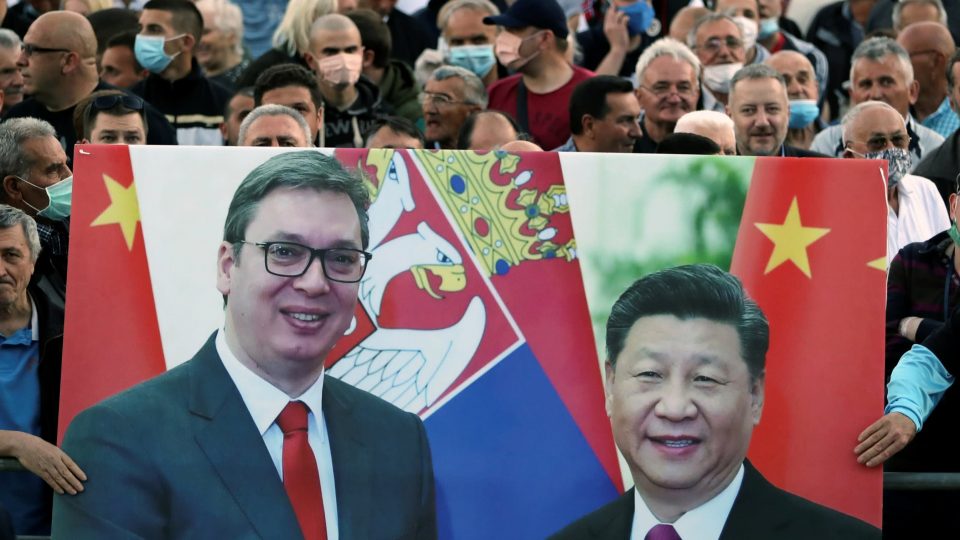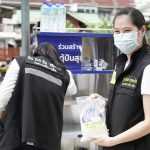China wants to know if you are with it or against it
Thitinan Pongsudhirak teaches at Chulalongkorn University’s Faculty of Political Science in Bangkok and directs its Institute of Security and International Studies.
As the coronavirus crisis continues to reshape geopolitics, the rivalry between China and the U.S. has deteriorated markedly. At issue is whether the international community is prepared to accept China’s virus-fighting assistance and its post-COVID position in the world or not. The proposition that “you are with us or against us,” not long ago brandished by Washington, is coming more now from Beijing.
Three distinct phases have characterized the COVID-19 pandemic. The first was whether others countries suffered “with” or “against” China. As the world watched while China boldly locked down swathes of its vast territory in January and February, some governments imposed early travel restrictions on its citizens, led by Australia and the U.S.
In Southeast Asia, a critical battleground in the China-U.S. faceoff, Singapore, Indonesia and Vietnam tightened travel rules quickly, whereas Cambodia, Laos, Myanmar and Thailand maintained road and air transport routes well into March. These four countries have depended on China for tourism, trade, investment and superpower support in the face of Western criticism against human rights and authoritarian proclivities.
The second stage was whether or not other pandemic-ravaged countries accepted China’s assistance and advice through its so-called “coronavirus diplomacy.” This was when Beijing began to export its medical equipment, expertise and largesse.
To date, more than 100 countries around the world have received China’s anti-virus overtures with varying degrees of enthusiasm. European countries that are participants in China’s Belt and Road Initiative infrastructure program, such as Italy, took in Chinese aid. Southeast Asian governments have broadly welcomed Chinese medical gear and advice but more so among the mainland countries, especially Cambodia and Laos.
But some countries have pushed back hard. Spain and the Netherlands, for example, declined what they deemed “defective” Chinese test kits and face masks. Sweden, with its own approach of building “herd immunity,” closed the last of China’s Confucius Institutes there.
Then there are those countries with more aggressive strategies. U.S. President Donald Trump labeled COVID-19 the “Chinese virus,” questioned whether Beijing had issued virus misinformation and suspended budget contributions to the World Health Organization, which it accused of conniving with Chinese authorities. Australia went a step further and called for an independent investigation of China’s virus mismanagement and the WHO’s role in it.
As partial reopenings take place from May, the third phase has come into play. Even though its growth this year will be much lower than forecast, China is likely to come out of COVID-19 in a better state than other major powers because it suffered earlier and recovered faster. At issue here, then, is whether countries accept China’s solidified status as a superpower or resist it.
In an ideal world, the coronavirus crisis would have galvanized international cooperation, led by China and the U.S., to fight a common enemy. Instead, the virus has worsened geopolitical tensions.
As the coronavirus blame game between the U.S. and China intensifies, an open conflict between the two superpowers is more plausible than at any time in recent decades. China, for example, has expanded its claims in the South China Sea by setting up administrative regions in the face of Vietnam’s opposition while the U.S. and others are preoccupied by the pandemic.
Nine plaintiffs so far in the U.S., including the state of Missouri, have filed lawsuits against China for its role in not preventing the spread of the coronavirus, and the Trump administration is alarmingly fingering China as the culprit for America’s woes. These charges which can degenerate into grounds for heightened economic warfare, even military action, if conditions take a turn for the worse. Naturally, China is defensive against what it sees as global scapegoating and a concerted drag on its geopolitical preeminence.
Both Chinese and U.S. leaders have incentives to boost nationalist inclinations and domestic popularity by finding outsiders to blame for internal problems. China’s economic slowdown puts President Xi Jinping under pressure at home ahead of the Chinese Communist Party’s centennial anniversary next year, while Trump faces election-year challenges.
Profound crises, such as that imposed by the coronavirus, often lead to cathartic changes. Instead of more tension and potential conflict, COVID-19 may also force structural reforms and adjustments at home in both the U.S. and China in a way that realigns their interests abroad.
For example, Trump could lose the election this year while Xi might be forced out by CCP cadres, resulting in successors who step away from confrontation and toward peaceful coexistence and a revamped international order that satisfies both, with a bigger space for China and enough of a role for the U.S.
While such a scenario that leads to more international cooperation, and others based on shifting domestic dynamics, may seem far-fetched, the alternatives of untenable tension and geopolitical showdown are infinitely more detrimental to all parties.




